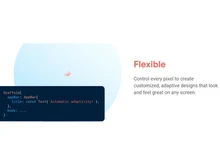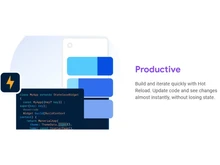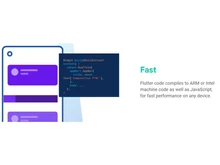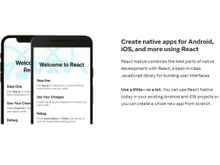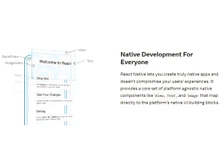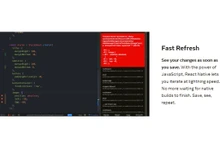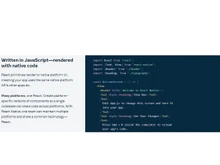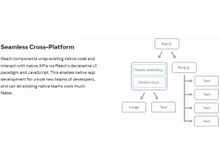Flutter is a framework developed by Google to help frontend and full-stack developers build an application's user interface (UI) for different platforms through a single codebase. React Native is another framework used to create native mobile apps via a single codebase. Here is a detailed comparison of Flutter and React Native to find which one is better.
Flutter vs React Native: Overview
Flutter and React Native are the two most popular mobile app development frameworks that let you develop multiple mobile apps for various operating systems. With them, you can develop, test, and deploy apps across different platforms with a single codebase. But you will find multiple differences between these two. For example, the documentation for using the software is more organized in Flutter than in React Native.
In a similar way, Flutter supports Android 4.1 and iOS 8, whereas React Native supports Android 4.1 and iOS 10. Let's find out more about their differences based on the following parameters.
- Written Languages
- Architecture
- Frames Per Second
- App Development Time
- 3D App Development
- Performance
- Applications Testing
- Supported Platforms
Flutter vs React Native: Pros and Cons
- Custom Layouts are not supported by React Native
- Creation of shareable APIs are not supported in Flutter
- React Native does not compile its JavaScript code into native code whereas Flutter compiles Dart code into native code.
- Flutter is installed via GitHub binary and React Native is installed via node package manager (NPM)
Flutter vs React Native: In Terms of Features
- Written Languages: One of the key differences between Flutter and React Native is the programming language they are written in. Flutter is written in Dart and React Native is in JavaScript programming languages.
- Architecture: Both these app development software solutions use different architectures for developing applications. Flutter uses Skia, a 2D graphic rendering library and React Native uses Flux architecture that also requires JavaScript bridging.
- Frames Per Second: When the application is Flutter, the app executes 60-120 frames per second. As compared to Flutter, React Native’s app executes 60 frames per second.
- App Development Time: The app development time of these mobile app development frameworks are different. With Flitter, the app can be developed in 80-150 hours on average. In React Native, the app could be developed in 1 to 2 months.
- 3D App Development: If you are looking for an app development framework that also lets you develop and design 3D applications, then go for React Native because Flutter does not support this feature.
Flutter vs React Native: Performance
React Native uses JavaScript to connect to native components through a bridge. Due to this, the development speed and time is quite slow. Whereas, in Flutter, there is no bridge to connect with the native components and therefore, native components’ interactions are faster. This enhances the application's overall performance. Hence, Flutter is better than React Native in terms of performance.
Flutter vs React Native: Applications Testing
Both mobile app development frameworks support the testing and deployment of applications but in a different way. In Flutter, you get inbuilt tools for testing the app features. With it, you can perform integration testing, widget testing, and unit testing. Compared to Flutter, React Native does not offer any built-in testing features and you need to rely on third-party applications for this purpose.
Flutter vs React Native: Supported Platforms
With Flutter and React Native, you can create and deploy mobile apps on several operating systems. When you create apps with Flutter, you can deploy them on Android SDK, iOS, Linux Debian, Linux Ubuntu, macOS, Windows, Chrome, Safari, Firefox, and Edge. The apps created with React Native can be deployed over Android, Android TV, iOS, macOS, tvOS, Web, Windows, etc. React Native supports more operating systems, therefore, it is a better choice than Flutter.
Flutter vs React Native: Which Is Better?
Both Flutter and React Native are equally good at developing mobile apps for various operating systems. Hence, which app development framework you should use depends on the development features you are looking for.
For example, Flutter is a good framework as it can develop apps in 80-150 hours, execute apps in 60-120 frames per second, and create custom layouts. React Native is a better framework over Flutter because it supports more operating systems for deployment, executes apps with 60 frames per second, and lets you create 3D applications as well.


 6 Ratings & 0 Reviews
6 Ratings & 0 Reviews



